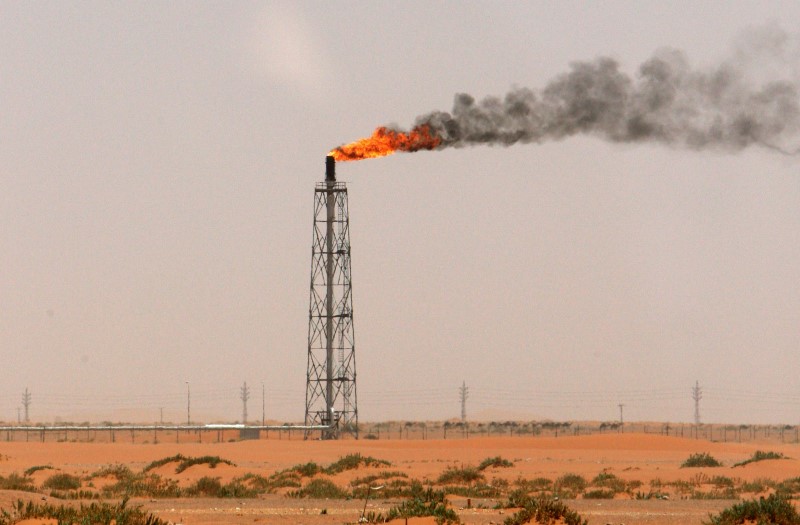By Dmitry Zhdannikov and Rania El Gamal
MOSCOW/DUBAI (Reuters) - Saudi Arabia is sending signals that it could boost its crude oil supplies in August to a new record level, overtaking Russia, the world's top oil producer, as it gets ready for tough talks next month for a global output freeze pact.
Industry sources say the kingdom, already the world's largest oil exporter, started to raise production from June, after holding it steady for the first half of the year, to meet rising seasonal domestic demand as well as higher exports requirements.
Higher production could give it more leverage during talks in September when both OPEC and non-OPEC producers are expected to revive a freeze deal to support oil prices, the sources say.
In June, Saudi Arabia pumped 10.55 million barrels of oil per day, and lifted production to 10.67 million bpd in July, the highest in its history.
Now the sources expect the OPEC heavyweight to raise its crude supplies to a further record this month as demand inside and outside the kingdom looks healthy.
One source from outside OPEC said the Saudis were quietly telling the market output could rise further in August to as high as 10.8-10.9 million bpd.
Last week, Saudi Energy Minister Khalid al-Falih sought to clarify why the kingdom hiked its production in July in an over supplied market. In a statement, Falih explained the rise was due to rising seasonal domestic demand and customers asking for more oil worldwide.
"Despite the bearish sentiment engulfing the market, we still see strong demand for our crude in most parts of the world, especially as supply outside OPEC has been declining fast, supply outages increasing, and global demand still showing signs of strength," he told state news agency SPA.
The amount of crude supplied to the market in July was 10.75 million bpd, above actual output as Saudi drew down the additional barrels from its huge inventories, SPA reported.
Oil prices (LCOc1) dropped to $27 per barrel in January from as high as $115 in mid-2014, hitting the budgets of oil exporters worldwide, including Saudi Arabia, and resulting in a record fiscal deficit for Riyadh.
A previous attempt to freeze output at January levels to support prices collapsed in April after Saudi Arabia said it wanted all producers, including Iran, to join the initiative.
But since the appointment of Falih in April, Saudi Arabia has taken a softer tone towards Iran at OPEC.
OPEC sources say the group will probably revive talks on freezing output when it meets non-OPEC nations next month in Algeria as Riyadh appears to want higher prices, but agreeing a level to freeze supplies is the main obstacle to a deal.
In January when the freeze idea first emerged, Saudi Arabia was producing 10.2 million bpd.
Russia, which back in April was ready to freeze production in the first coordinated action with OPEC since 2001, also signalled it would continue boosting output.
Its output currently hovers near an all time high of 10.85 million bpd and Russian officials expect it to edge up further next year.
And Iran, OPEC's third biggest producer, has raised its production to 3.850 million bpd now from 3.37 million bpd in January and said it will not join any freeze initiative until it reaches its pre-sanction output level of 4 million bpd.

"It would therefore be a very hard sell for Saudi Arabia to have other countries join a collective action plan, while it is the main source of supply increase - outside of Iran post sanctions," wrote Olivier Jakob from Petromatrix in a note.